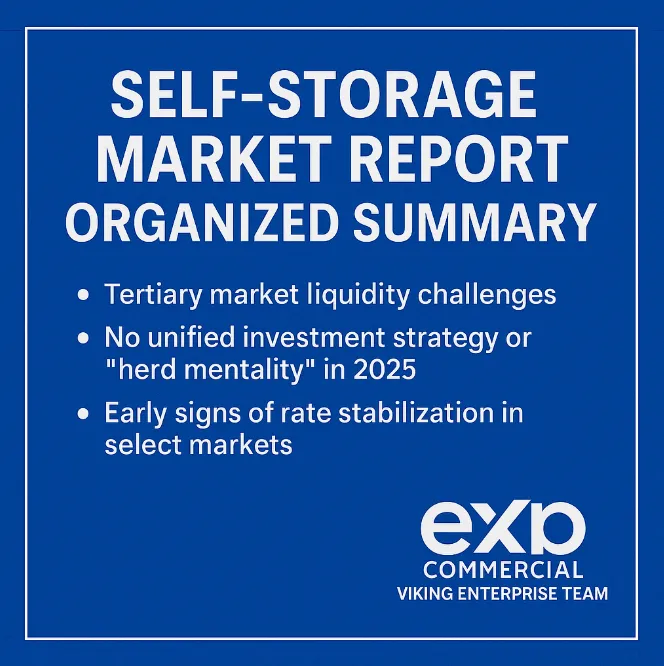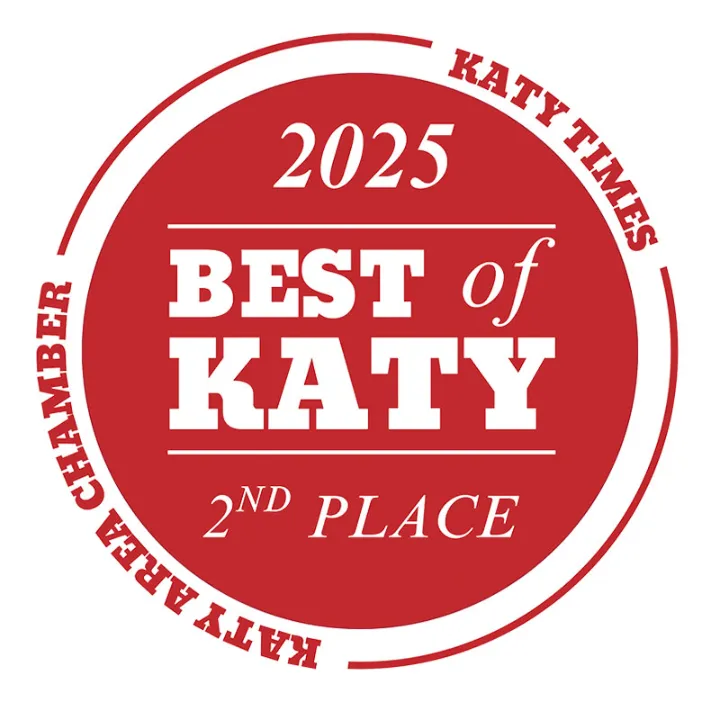Your Trusted Houston Commercial Real Estate Brokerage
Viking Enterprise LLC is part of eXp Commercial, an agent-led, cloud-based commercial real estate brokerage with agents across the globe.
Email: [email protected]
Call: (281) 222-0433
Your Trusted Katy / Fulshear & Houston Commercial Real Estate Brokerage
Viking Enterprise LLC is part of eXp Commercial, an agent-led, cloud-based commercial real estate brokerage with agents across the globe.
Looking to invest, buy, sell or lease? We can help.
Looking to invest, buy, sell or lease? We can help.
FEATURED PROPERTIES




OUR FEATURED TENANTS & CLIENTS
eXp Commercial - Viking Enterprise Team's real estate network provides unparalleled commercial real estate services to Tenants and Landlords around the Katy- Houston area. Our knowledge, experience, and reputation sets us apart from many firms.
A commercial property owner might have various plans that would necessitate the services of a commercial real estate broker. Some of the common scenarios include:
1. Selling the Property: If the owner decides it’s time to sell the property, a commercial real estate broker can help determine the market value, market the property effectively, and negotiate with potential buyers to get the best possible price.
2. Leasing Space: For property owners looking to lease out part or all of their commercial space, a broker can help find suitable tenants, negotiate lease terms, and ensure the lease agreements meet all legal requirements and serve the owner’s best interests.
3. Acquiring More Properties: Owners looking to expand their portfolio would benefit from a broker's knowledge of the market, access to listings, and negotiation skills to secure additional properties at favorable terms.
4. Property Management: While not all brokers offer this service, some commercial real estate brokers or their affiliates offer property management services. This can be particularly appealing for owners who prefer a hands-off approach or are managing properties from a distance.
5. Market Analysis: Owners considering future developments, renovations, or rebranding of their property might engage a broker for a comprehensive market analysis. This helps in understanding current market trends, the demand for different types of spaces, and potential returns on investment for various strategies.
6. Refinancing: In situations where a property owner is looking to refinance their property, a commercial real estate broker can provide valuable insights into the property’s current market value, assist in gathering necessary documentation, and even help in finding the best financing options.
7. Partnership or Investment Opportunities: Owners interested in exploring partnerships, joint ventures, or seeking investors for expansion or development projects might use a broker to find and vet potential partners or investors.
8. Consulting on Zoning and Use Changes: When contemplating a change in the use of the property or dealing with zoning issues, a broker with experience in local regulations and the specific property type can provide guidance and strategic planning assistance.
9. Exit Strategy Planning: For owners looking to plan an exit strategy from their investment, whether it’s through a strategic sale or a gradual winding down of operations, brokers can provide market insights, timing advice, and valuation services to optimize the exit process.
In any of these scenarios, the expertise and services provided by a commercial real estate broker can save the property owner time and money, while also providing access to a wider network of potential buyers, tenants, and industry professionals. Give us a call today!
Reviews

📦📉 “Self-Storage Market 2025: Why Tertiary Markets Are Struggling (And Where Deals Are Getting Done) 📈🏢”
📦📉 “Self-Storage Market 2025: Why Tertiary Markets Are Struggling (And Where Deals Are Getting Done) 📈🏢”
🏬📊 “Self-Storage Industry Report 2025: Rate Stabilization, REIT Trends & What Investors Must Know 🔍💼”
Self-Storage Market Report 2025 — What Investors Need to Know
The self-storage industry enters 2025 with cautious optimism. Performance varies widely by market type, operator profile, and supply pipelines, but three themes define today’s landscape:
1.Tertiary market liquidity challenges
2.No clear “herd mentality” among operators this year
3.Early signs of rate stabilization in select, supply-disciplined markets
Below is a fully organized breakdown designed for commercial real estate investors, self-storage owners, lenders, and acquisition teams looking to understand today’s market direction.
1. Tertiary Markets: Liquidity Remains Tight
Across conference conversations and operator interviews, one challenge continues to dominate: moving self-storage assets in tertiary markets is difficult.
Smaller Buyer Pools
• Investors willing to purchase tertiary self-storage assets have tightened dramatically.
• Flat performance or pro-forma-heavy underwriting turns buyers away.
• Deals priced based on 2022–23 expectations are no longer clearing the market.
Shift in Buyer Strategy
For years, many groups adopted a “portfolio approach,” spreading assets across primary, secondary, and tertiary markets.
Today, buyers prefer:
·Markets with stable demand
·Clear rate recovery trajectories
·Lower new-supply risk
This reallocation is pushing tertiary values down — often materially below expectations set 18–24 months ago.
Where Deals Are Happening
Despite challenges, tertiary deals are still closing when:
·Operators already have a regional footprint
·Buyers possess operational efficiencies in that geography
·Assets are well-run and produce consistent occupancy
However, the broad, fast-moving tertiary trades of recent years have slowed significantly.
2. No “Herd Mentality” in 2025: A Deal-by-Deal Market
At both the Austin SSA and Las Vegas SSA conferences, one theme stood out:
There is no dominant acquisition or development strategy this year.
Operators Are Divided
·Some are aggressively buying, believing pricing is near the bottom.
·Others remain completely inactive, citing high capital costs and uncertain demand.
·Many are selectively active, chasing deals only within tight geographic or operational filters.
Unlike prior cycles—“build everything,” “raise rates everywhere,” or “buy any under-managed deal”—2025 is not a herd-mentality year.
Operators are moving independently, guided by micro-market fundamentals rather than industry-wide narratives.
**3. Have Rates Finally Stabilized? Early Signs Say: In Some Markets, Yes.”
Yardi’s September 2025 report shows the first signs of a turning point after nearly three years of downward pressure.
National Indicators
·National YoY advertised rate growth: +0.9%
·Average rent per square foot: $16.80
·Directionally positive — even if modest
REITs vs. Non-REIT Operators
·REIT same-store advertised rents: +2.6% YoY
·Non-REIT operators: +0.1% YoY
Why the difference?
REITs benefit from:
·Scale
·Centralized pricing technology
·Superior digital marketing
·Lower capital costs
Top Markets With Rate Growth (Low New Supply)
Markets seeing the strongest YoY increases (2.5–3.6%):
·Detroit
·Chicago
·Minneapolis
·Indianapolis
These metros share a common trait: limited new construction.
Markets Still Under Pressure (Oversupplied)
Declines of -0.6% to -2.3% persist in:
·Austin
·Salt Lake City
·San Diego
·Denver
·San Antonio
These markets face ongoing lease-up activity and oversupplied pipelines, delaying recovery.
The Takeaway
Rate stabilization is emerging — but only in markets where supply is under control.
Sun Belt metros with heavy development pipelines will take longer to recover.
4. REIT Performance Snapshot
Quarterly operating metrics (Data1–Data5) show moderate, steady improvement from 2023 through 2025, with transaction activity picking up in 2025 Q3.
The REIT landscape suggests:
·Stability returning
·Capital markets activity increasing
·Some renewed appetite for acquisitions
This aligns with the broader trend of selective, not aggressive, investment behavior.
5. Economic Context: Inflation Trending Toward Normal
Inflation peaked in 2023 and moved toward a more normalized range through 2024–25:
Quarter
YoY Inflation
2023 Q3
3.7%
2023 Q4
3.4%
2024 Q1
3.5%
2024 Q2
3.0%
2024 Q3
2.4%
2024 Q4
2.9%
2025 Q1
2.4%
2025 Q2
2.7%
Inflation hovering near the Fed’s informal comfort zone supports the case for gradual rate stability, which could help storage fundamentals stabilize further in 2025–26.
Conclusion
The self-storage industry in 2025 is defined by selective opportunity, not broad momentum.
·Tertiary markets remain difficult unless operators have regional scale.
·Investment strategies are fragmented — no clear consensus.
·Rate stabilization is emerging in supply-disciplined metros.
For investors and owners, this is a market won by precision, not by volume.
Underwriting discipline, operational strength, and micro-market knowledge will determine who succeeds.
https://www.houstonrealestatebrokerage.com/
https://www.houstonrealestatebrokerage.com/houston-cre-navigator
https://www.commercialexchange.com/agent/653bf5593e3a3e1dcec275a6
http://expressoffers.com/[email protected]
https://app.bullpenre.com/profile/1742476177701x437444415125976000
https://author.billrapponline.com/
https://www.amazon.com/dp/B0F32Z5BH2
https://veed.cello.so/FOmzTty6oi9
https://creplaybookseries.billrapponline.com
https://creplaybook.billrapponline.com/
© 2023-2024 Bill Rapp, Broker Associate, eXp Commercial Viking Enterprise Team
eXp Commercial - Viking Enterprise team real estate network provides unparalleled commercial real estate services to Tenants and Landlords around the greater Katy & Houston MSA area. Our knowledge, experience, and reputation sets us apart from many firms.
A commercial property owner might have various plans that would necessitate the services of a commercial real estate broker. Some of the common scenarios include:
1. Selling the Property: If the owner decides it’s time to sell the property, a commercial real estate broker can help determine the market value, market the property effectively, and negotiate with potential buyers to get the best possible price.
2. Leasing Space: For property owners looking to lease out part or all of their commercial space, a broker can help find suitable tenants, negotiate lease terms, and ensure the lease agreements meet all legal requirements and serve the owner’s best interests.
3. Acquiring More Properties: Owners looking to expand their portfolio would benefit from a broker's knowledge of the market, access to listings, and negotiation skills to secure additional properties at favorable terms.
4. Property Management: While not all brokers offer this service, some commercial real estate brokers or their affiliates offer property management services. This can be particularly appealing for owners who prefer a hands-off approach or are managing properties from a distance.
5. Market Analysis: Owners considering future developments, renovations, or rebranding of their property might engage a broker for a comprehensive market analysis. This helps in understanding current market trends, the demand for different types of spaces, and potential returns on investment for various strategies.
6. Refinancing: In situations where a property owner is looking to refinance their property, a commercial real estate broker can provide valuable insights into the property’s current market value, assist in gathering necessary documentation, and even help in finding the best financing options.
7. Partnership or Investment Opportunities: Owners interested in exploring partnerships, joint ventures, or seeking investors for expansion or development projects might use a broker to find and vet potential partners or investors.
8. Consulting on Zoning and Use Changes: When contemplating a change in the use of the property or dealing with zoning issues, a broker with experience in local regulations and the specific property type can provide guidance and strategic planning assistance.
9. Exit Strategy Planning: For owners looking to plan an exit strategy from their investment, whether it’s through a strategic sale or a gradual winding down of operations, brokers can provide market insights, timing advice, and valuation services to optimize the exit process.
In any of these scenarios, the expertise and services provided by a commercial real estate broker can save the property owner time and money, while also providing access to a wider network of potential buyers, tenants, and industry professionals. Give us a call today!

Find the perfect location for your business.
Let us help your business succeed.

📦📉 “Self-Storage Market 2025: Why Tertiary Markets Are Struggling (And Where Deals Are Getting Done) 📈🏢”
📦📉 “Self-Storage Market 2025: Why Tertiary Markets Are Struggling (And Where Deals Are Getting Done) 📈🏢”
🏬📊 “Self-Storage Industry Report 2025: Rate Stabilization, REIT Trends & What Investors Must Know 🔍💼”
Self-Storage Market Report 2025 — What Investors Need to Know
The self-storage industry enters 2025 with cautious optimism. Performance varies widely by market type, operator profile, and supply pipelines, but three themes define today’s landscape:
1.Tertiary market liquidity challenges
2.No clear “herd mentality” among operators this year
3.Early signs of rate stabilization in select, supply-disciplined markets
Below is a fully organized breakdown designed for commercial real estate investors, self-storage owners, lenders, and acquisition teams looking to understand today’s market direction.
1. Tertiary Markets: Liquidity Remains Tight
Across conference conversations and operator interviews, one challenge continues to dominate: moving self-storage assets in tertiary markets is difficult.
Smaller Buyer Pools
• Investors willing to purchase tertiary self-storage assets have tightened dramatically.
• Flat performance or pro-forma-heavy underwriting turns buyers away.
• Deals priced based on 2022–23 expectations are no longer clearing the market.
Shift in Buyer Strategy
For years, many groups adopted a “portfolio approach,” spreading assets across primary, secondary, and tertiary markets.
Today, buyers prefer:
·Markets with stable demand
·Clear rate recovery trajectories
·Lower new-supply risk
This reallocation is pushing tertiary values down — often materially below expectations set 18–24 months ago.
Where Deals Are Happening
Despite challenges, tertiary deals are still closing when:
·Operators already have a regional footprint
·Buyers possess operational efficiencies in that geography
·Assets are well-run and produce consistent occupancy
However, the broad, fast-moving tertiary trades of recent years have slowed significantly.
2. No “Herd Mentality” in 2025: A Deal-by-Deal Market
At both the Austin SSA and Las Vegas SSA conferences, one theme stood out:
There is no dominant acquisition or development strategy this year.
Operators Are Divided
·Some are aggressively buying, believing pricing is near the bottom.
·Others remain completely inactive, citing high capital costs and uncertain demand.
·Many are selectively active, chasing deals only within tight geographic or operational filters.
Unlike prior cycles—“build everything,” “raise rates everywhere,” or “buy any under-managed deal”—2025 is not a herd-mentality year.
Operators are moving independently, guided by micro-market fundamentals rather than industry-wide narratives.
**3. Have Rates Finally Stabilized? Early Signs Say: In Some Markets, Yes.”
Yardi’s September 2025 report shows the first signs of a turning point after nearly three years of downward pressure.
National Indicators
·National YoY advertised rate growth: +0.9%
·Average rent per square foot: $16.80
·Directionally positive — even if modest
REITs vs. Non-REIT Operators
·REIT same-store advertised rents: +2.6% YoY
·Non-REIT operators: +0.1% YoY
Why the difference?
REITs benefit from:
·Scale
·Centralized pricing technology
·Superior digital marketing
·Lower capital costs
Top Markets With Rate Growth (Low New Supply)
Markets seeing the strongest YoY increases (2.5–3.6%):
·Detroit
·Chicago
·Minneapolis
·Indianapolis
These metros share a common trait: limited new construction.
Markets Still Under Pressure (Oversupplied)
Declines of -0.6% to -2.3% persist in:
·Austin
·Salt Lake City
·San Diego
·Denver
·San Antonio
These markets face ongoing lease-up activity and oversupplied pipelines, delaying recovery.
The Takeaway
Rate stabilization is emerging — but only in markets where supply is under control.
Sun Belt metros with heavy development pipelines will take longer to recover.
4. REIT Performance Snapshot
Quarterly operating metrics (Data1–Data5) show moderate, steady improvement from 2023 through 2025, with transaction activity picking up in 2025 Q3.
The REIT landscape suggests:
·Stability returning
·Capital markets activity increasing
·Some renewed appetite for acquisitions
This aligns with the broader trend of selective, not aggressive, investment behavior.
5. Economic Context: Inflation Trending Toward Normal
Inflation peaked in 2023 and moved toward a more normalized range through 2024–25:
Quarter
YoY Inflation
2023 Q3
3.7%
2023 Q4
3.4%
2024 Q1
3.5%
2024 Q2
3.0%
2024 Q3
2.4%
2024 Q4
2.9%
2025 Q1
2.4%
2025 Q2
2.7%
Inflation hovering near the Fed’s informal comfort zone supports the case for gradual rate stability, which could help storage fundamentals stabilize further in 2025–26.
Conclusion
The self-storage industry in 2025 is defined by selective opportunity, not broad momentum.
·Tertiary markets remain difficult unless operators have regional scale.
·Investment strategies are fragmented — no clear consensus.
·Rate stabilization is emerging in supply-disciplined metros.
For investors and owners, this is a market won by precision, not by volume.
Underwriting discipline, operational strength, and micro-market knowledge will determine who succeeds.
https://www.houstonrealestatebrokerage.com/
https://www.houstonrealestatebrokerage.com/houston-cre-navigator
https://www.commercialexchange.com/agent/653bf5593e3a3e1dcec275a6
http://expressoffers.com/[email protected]
https://app.bullpenre.com/profile/1742476177701x437444415125976000
https://author.billrapponline.com/
https://www.amazon.com/dp/B0F32Z5BH2
https://veed.cello.so/FOmzTty6oi9
https://creplaybookseries.billrapponline.com
https://creplaybook.billrapponline.com/
© 2023-2024 Bill Rapp, Broker Associate, eXp Commercial Viking Enterprise Team
Find the perfect location for your business.
Let us help your business succeed.
9600 Great Hills Trail, Suite 150w Austin, TX 78759 |
855.450.0324 xx255
Texas Real Estate Commission Consumer Protection Notice Texas Real Estate Commission
Information About Brokerage Services eXp Commercial LLC #9010212
Viking Enterprise LLC #9009614

Sign up to receive the latest news on property investment and commercial real estate listings.
Contact Us
901 S Mopac Expwy, Bldg 2, Suite 350 Austin, TX 78746 | 512.474.5557Texas Real Estate Commission
Consumer Protection Notice Texas Real Estate Commission Information About Brokerage Services Reliance Retail, LLC #603091
Texas RS, LLC #9003193 | RESOLUT RE Is Licensed In Louisiana #0995694083


Facebook
Instagram
X
LinkedIn
Youtube
TikTok